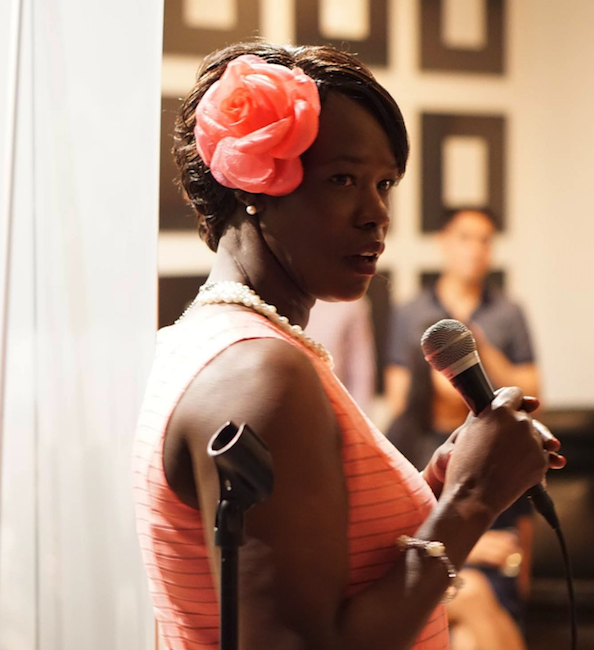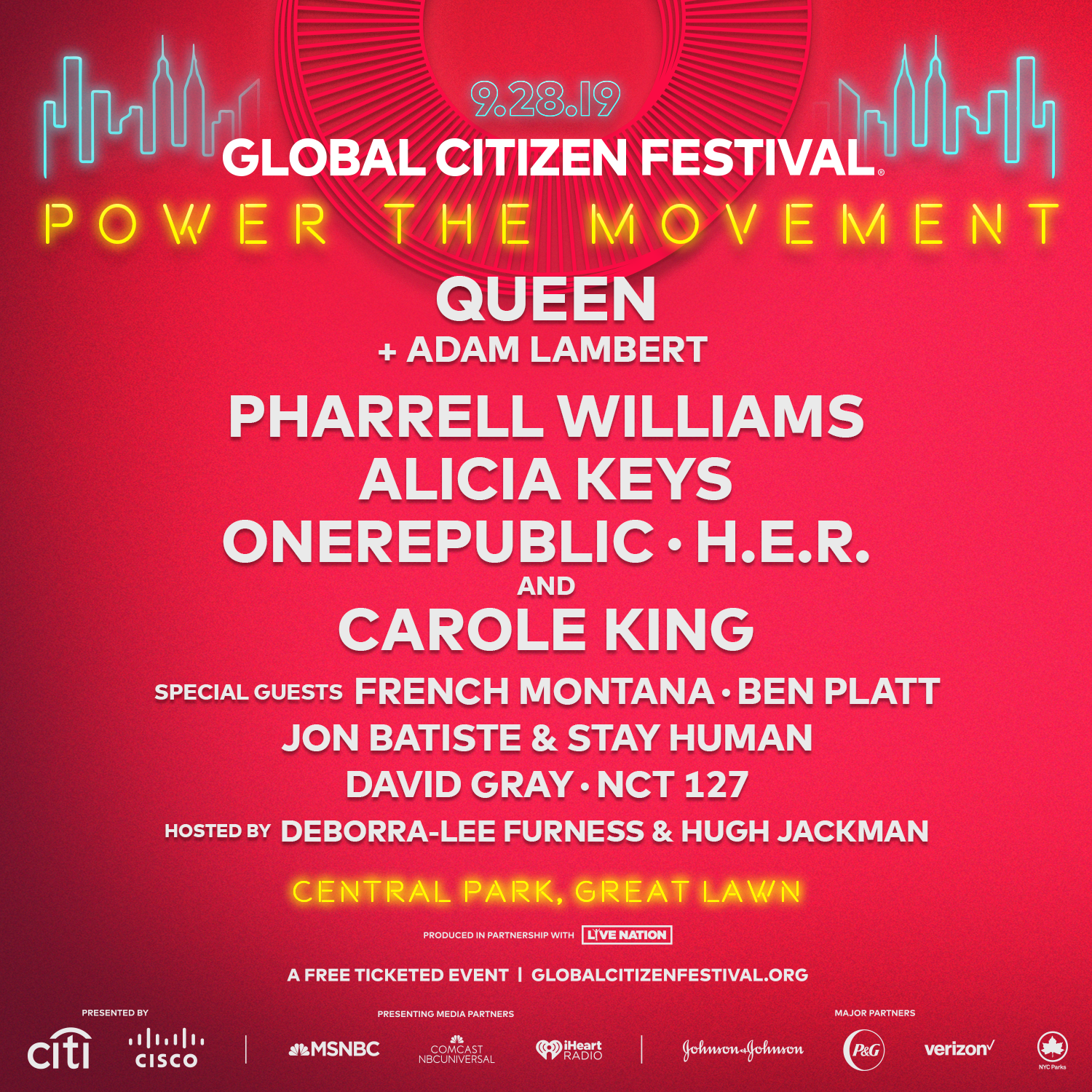Nyanthiol Chambang is a mother of three who lives in Connecticut and works at a pharmaceutical company. She’s also a survivor of war.
Chambang and her brother fled South Sudan as kids, and now they're rescuing women and children from conflict zones in the country through their organization Thon Met African Peace Foundation.
Take Action: Download the App and Help Kids Facing Conflict and Crisis Stay in School
With a background in finance, Chambang acts as Thon Met’s executive director and leads the effort to create a safe village in Ethiopia for refugees where they can live safely and attend school.

The 36-year-old spoke with Global Citizen about her experience living in refugee camps, the challenges of building a resettlement community, and more.
Global Citizen: Why did you start Thon Met African Peace Foundation? Do you have a personal connection to the organization's mission?
Nyanthiol Chambang: I fled South Sudan with my brother when I was 8 years old. After a precarious four-month journey, we made it to Ifo/Kakuma refugee camp in Kenya where we stayed for four long years. In 1995, my brother and I were given the opportunity to resettle in the United States. At the age of 14, I began my first formal education. I thrived, graduating high school with honors and becoming a champion track and field athlete. At around that time, I was reacquainted with Nhial, a young man I’d known as a child from my village. We are married and now have three young children.
Learn More: The 2019 Global Citizen Festival in New York
While my brother and I have pursued better lives for ourselves in America, we have never given up the hope of one day returning to a safe and peaceful South Sudan. Like our grandparents and parents before us, we dream of a South Sudan in which children can live in homes with their families, safe from violence. We dream of a South Sudan where children can attend school, and feel safe, and where they can build dreams of their own. I started Thon Met African Peace Foundation to do my part to bring us closer to this dream of a peaceful South Sudan and stability for its people.
What kind of conflict and crises do the children of South Sudan have to deal with?
South Sudan has been in war as long as I [can] remember. Thousands of South Sudanese are running for their lives, burying their loved ones, they can’t comprehend why their wives and daughters are being brutally raped. They have no hope, or reason to hope, for a return to safety or stability. Through Thon Met, we provide a path to self-sufficiency and a new reason to hope for a better future. I wanted to focus on women and children refugees because they have, in some ways, suffered the most brutally through this seemingly endless war. I wanted to create a safe community for them.
When did you start relocating families? Where did you bring them, and how?
The original mission of Thon Met Peace was to build a school for children in South Sudan. We achieved our goal but were heartbroken [in] 2005 when war broke out again in the area and gunmen took aim at our school, its children, and its teachers, many of whom were my own relatives. As we tried to heal from this grief, violent turmoil began in December 2013 and renewed fighting shattered a peace deal that was years in the making. Nearly half of South Sudan’s refugees have fled to neighboring countries. In addition, 4.3 million people have been displaced. We decided that we would transfer our efforts from developing institutions in South Sudan to building a safe village for displaced South Sudanese in Ethiopia, far away from war.
My grandfather had left my brother and me a large plot of land outside of Gambela, Ethiopia, and we decided to use this to house the Thon Met village. We completed construction of our first hut about five years ago and then paid for our first family — a woman and three children — to be transported by a mix of a private van and public bus from the refugee camp to the village.
Did you have a lot of experience relocating families before, or was this completely new to you?
I have personal experience as life as a displaced person; at the age of 8, I found myself parentless. I learned too quickly about the hardships of life as a refugee. At the Kakuma refugee camp, although I was safe from gunfire, I had none of the beauty or peace of my former life. With too many refugees and too few supplies, the camp was always short of food, water, and space. We slept in tents — home-made out of sheets of cloth — and ate our rations of lentil soup and rice. Every now and then we would attend a school session, where volunteers would teach us in a makeshift school-kids and mothers huddled around the volunteers, with neither books nor pencils to work with. For the most part, though, without our parents, life structures, or sufficient food to eat, education became an afterthought.
We spent four years at this refugee camp, in a constant state of purgatory. To this day, I always think of how can we help refugees still living in these camps, where conditions have reportedly deteriorated even further, that have been stuck for years without knowing if they will be selected to be rescued and delivered into a new life of hope.
What is it like relocating families?
On the ground in refugee camps, we learn about family stories and then make the difficult decisions of which families to bring first. We selected our first family, that is we gave them priority because the mother had been ill and was suffering extreme PTSD. We knew it might be a matter of life and death to get her out of the camp. Beyond emergent needs, we consider the prospective villagers’ skills; as we are trying to make the village self-sufficient, we look for at least some villagers with relevant skill sets or experience such as in agriculture or husbandry. We then safely transport the refugees to the village by private cars and public buses.
Read More: How to Get Tickets to Global Citizen Festival 2019 in NYC
We have an agriculture expert coming to help folks learn how to grow fruits and vegetables. This is a fun activity for the kids as they are eager to learn how to grow their own food, from corn to mangoes. We purchased gardening tools to enable them to do so. Most villagers already know how to grow crops, but they need tools, land, and materials.
In addition, with enough funding, women in the village would like to start their own entrepreneurship by netting and beading. This could help them earn independent incomes to support their families. Our rescue-to-resettlement miracle is a seed of trust that has seen many families rescued, 40 now resettled, and over 100 more waiting in the wings for more huts to open in the village.
What kinds of challenges have you faced at Thon Met?
The woman who moved into our first hut with her children became ill. As we have no dedicated medical fund, we had to make difficult decisions about how to address the issue financially. Every dollar we chose to allocate to her care put us further away from beginning construction on a home for the next family in need of a home in the village. We knew we had some obligation to care for her medical needs. Her suffering impacted the whole community. We spent a good amount of time thinking about how to weigh this specific decision and decisions like it in the future.
What is difficult about transitioning out of refugee camps?
As you can imagine, going through transitioning refugees and learning about their circumstances is emotional work. We are anxious to help as many refugees as we can, and I know our job is just the beginning. We know each and every day similar stories of pain and trauma are happening in the refugee camps. One such story that came back to us involved a mother who had lost her four children in the war but then had taken other children under her arms to care for in the refugee camp. They lived together as a family in the refugee camp, sometimes in an open-air tent, sometimes under the stars when no tents were available. This was the third family relocated to Thon Met village. For Nyabuay, one of the four children, entering a home was a relief. Upon arriving at the village, Nyabuay asked her mother, “This is our home that has a door? So, no flies can enter our food?” Her mother nodded in similar disbelief.
There are thousands of stories about the plight of South Sudanese trying to survive in refugee camps each day. These mind-numbing stories are personal to me. So, when I speak to the children and mothers who we have relocated and other refugees, it reminds me of when I was forced to leave my home without being able to say goodbye to my parents. And I hope no other child ever has to do the same. And every day I support Thon Met, I make my own small effort to help more families stay together.
This interview has been edited and condensed for clarity.

The 2019 Global Citizen Festival in New York will be presented by Citi and Cisco and in association with our Production Partner, Live Nation. MSNBC, Comcast NBCUniversal, and iHeart will serve as Presenting Media Partners and will air a live simulcast of the Festival on MSNBC and on iHeart Radio Stations. The Festival will also be livestreamed on YouTube and Twitter, presented by Johnson & Johnson.
Proud partners of the 2019 Global Citizen Festival include Global Citizen’s global health partner and major partner Johnson & Johnson, and major partners P&G, Verizon, and NYC Parks.